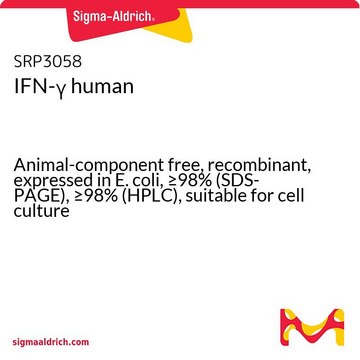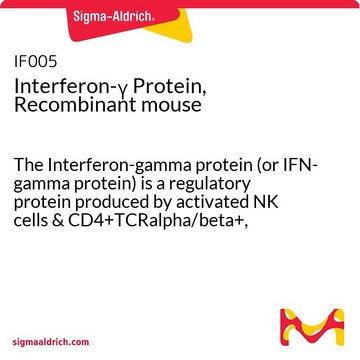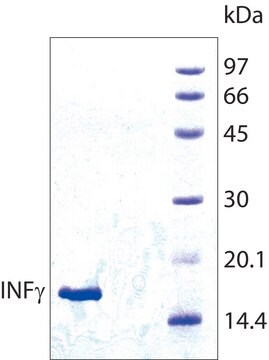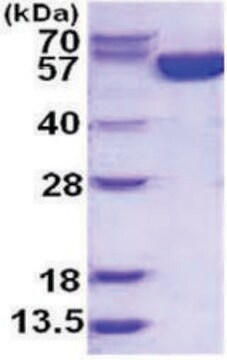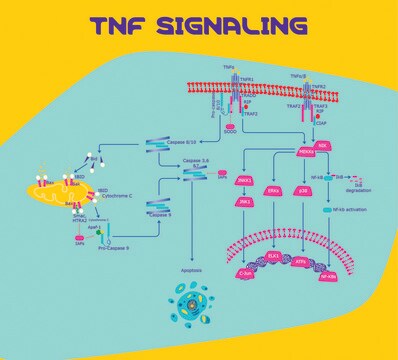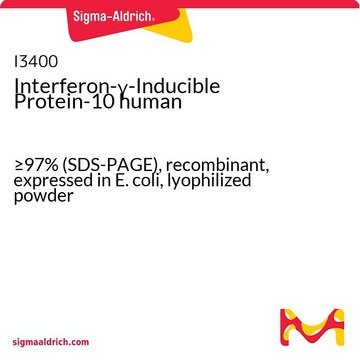I17001
Interferon-γ human
IFN-gamma, recombinant, expressed in HEK 293 cells, suitable for cell culture, endotoxin tested
Synonym(e):
IFN-γ
About This Item
Empfohlene Produkte
Rekombinant
expressed in HEK 293 cells
Qualitätsniveau
Assay
≥98% (SDS-PAGE)
Form
lyophilized powder
Wirksamkeit
≤0.250 ng/mL In Viral Resistance Assay ED50
Mol-Gew.
16 kDa (glycosylated)
Methode(n)
cell culture | mammalian: suitable
Eignung
endotoxin tested
Lagertemp.
−20°C
Suchen Sie nach ähnlichen Produkten? Aufrufen Leitfaden zum Produktvergleich
Allgemeine Beschreibung
Anwendung
Biochem./physiol. Wirkung
Interferon-γ (IFN-γ) plays an essential role in function of virtually all immune cells and both innate and adaptive immune responses. IFN-γ exhibits various biological effects, such as antiviral activity, inhibition of cell or tumor growth and promotion of terminal differentiation of B cells into immunoglobulin-producing cells. This cytokine also activates macrophages, increases cytotoxicity of natural killer cells and promotes T cell cytotoxicity. In addition to antiviral activity, recombinant human IFN-γ is a potent modulator of immune responses and modifies cellular processes.
Sequenz
Physikalische Form
Hinweis zur Analyse
Lagerklassenschlüssel
11 - Combustible Solids
WGK
WGK 2
Flammpunkt (°F)
Not applicable
Flammpunkt (°C)
Not applicable
Analysenzertifikate (COA)
Suchen Sie nach Analysenzertifikate (COA), indem Sie die Lot-/Chargennummer des Produkts eingeben. Lot- und Chargennummern sind auf dem Produktetikett hinter den Wörtern ‘Lot’ oder ‘Batch’ (Lot oder Charge) zu finden.
Besitzen Sie dieses Produkt bereits?
In der Dokumentenbibliothek finden Sie die Dokumentation zu den Produkten, die Sie kürzlich erworben haben.
Kunden haben sich ebenfalls angesehen
Unser Team von Wissenschaftlern verfügt über Erfahrung in allen Forschungsbereichen einschließlich Life Science, Materialwissenschaften, chemischer Synthese, Chromatographie, Analytik und vielen mehr..
Setzen Sie sich mit dem technischen Dienst in Verbindung.